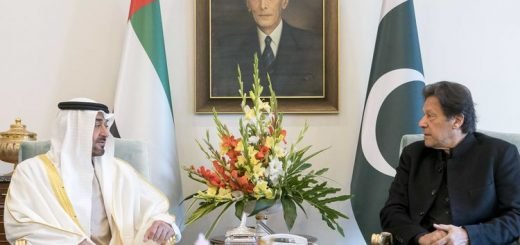My efforts may not stand up to the bench mark of poetry, but it is my life’s document”: Atal Bihari Vajpayee | The End of An Era

The Former Prime Minister Atal Bihari Vajpayee had written a poem when he was admitted to the New York Hospital in 1988 and back then although he didn’t know that his series of poem would make a world mark, wrote with full vigour that “death has a very short lifespan and does not even last for few moments.” The beloved former Prime Minister passed away on 16th August 2018, aged 93. The politics that the Indian democracy had noticed during his reign till date remains one of its kind as the whole country offered their deepest condolences to the BJP veteran. The veteran served India three terms in a row from 1996-2004 becoming the first non-Congress member to have ruled the country. Mr Vajpayee had been active with politics for a very long time as he joined Arya Kumar Sabha, the youth-wing of the Arya Samajh and enjoyed political activism since then. At the age of 16, when usually people associate themselves with sports and fun, he decided to take a complete detour and joined the Rashtriya Swayamsevak Sangh (RSS), marking the beginning of his political career. Though after the assassination of Mahatma Gandhi the RSS had a bad reputation, Vajpayee continued to work towards the creation of new political party in India which would later be known as the Bharatiya Janata Party. Vajpayee was a nobleman and his contribution towards Indian polity has been immense. With Shyama Prasad Mukherjee he went on a strike in the state of Kashmir to look after the treatment of non-Kashmiris and restored the matter. Although in the 1957 Lok Sabha Elections he had lost, he was however elected from the district of Balrampur. He was arrested in the 1975 Emergency Period imposed by the Indian National Congress under Indira Gandhi and after the state of emergency ended, it marked the beginning of coalition politics in India and the Bharatiya Jana Sangh too conceded with the Janata Party and this coalition later won the elections in 1977. Under the Prime Ministership of Moraji Desai, he was the External Minister of Foreign Minister and it was his oratory skills that made him the most distinct Indian Politician.
Atal Bihari Vajpayee’s reign was something extraordinary as he managed to completely change the scenario both domestically and internationally. In 1998 under his Prime Ministership, India conducted five nuclear tests in present-day Pokhran pushing the country towards nuclear capabilities. These nuclear tests were subjects to international criticisms especially from the US which had also imposed sanctions, but the sanctions could not last long and India’s nuclear tests were appraised by Russia, Japan and Canada. The same year, Vajpayee and his government decided to work towards a diplomatic relation with Pakistan and this was another milestone for the administration. Under the Lahore Declaration which was a result of this summit, trade relations were established and aimed towards a new goal for India and South East Asia, removing nuclear tensions that were created after the 1998 tests. The whole issue of Ramjanmabhumi and the Babri Masjid escalated during his tenure and the speech prior to the day demolition had put a question to his Prime Ministership. The tensions between India and Pakistan grew and Vajpayee called upon a meet in Agra with the former Pakistani President Parvez Musharraf to decide the fate of Kashmir, but the Agra summit wasn’t successfully leading to the attacks of 2001 Parliament attack. The administration ordered some 7,50,000 soldiers to be positioned at the International borders and implementing the Prevention of Terrorism Act, 2002.
To the world, Vajpayee was an excellent statesman who could understand the balance between state and societal demands. When he had served India as the Foreign Minister under Desai’s reign, he became the first Indian to have delivered a speech in the United Nations General Assembly in 1977. Though he didn’t use any foreign language and the speech was in Hindi, he had made sure that language does not become a problem in letting the world know of what his country expected from the world and where India stood in the global context. He spoke of various issues right from nuclear disbarment to state-sponsored terrorism. Subjects of Non-Alignment movements were touched alongside the conception of ‘VasudhaivaKutimbakum’: the vision of the world as one single family where every member had an equal representation and voice. He also spoke of the India-Pakistan Bilateral relations and that the whole consolidation process would ensure a long-term peace for both the nations. Following the attacks on the Parliament, he visited the UNGA to raise matters relating to state-sponsored terrorism and that such activities would not stop India from its movement against terrorists acts and practices. The foreign relations had also gone up under his administration and India established itself as a part of the world order. India was successful in strengthening the relations with the United States, Russia and Japan. Economic activities resulted in a 7% growth rate every year.
Following his demise, the King of Bhutan and the former President of Afghanistan Hamid Karzai paid their visit and were present at his funeral. The death of Vajpayee is definitely the end of an ‘era’ but his vision and words will still continue to live within.
*Arijita Sinha Roy is a Research Intern at The Kootneeti



















